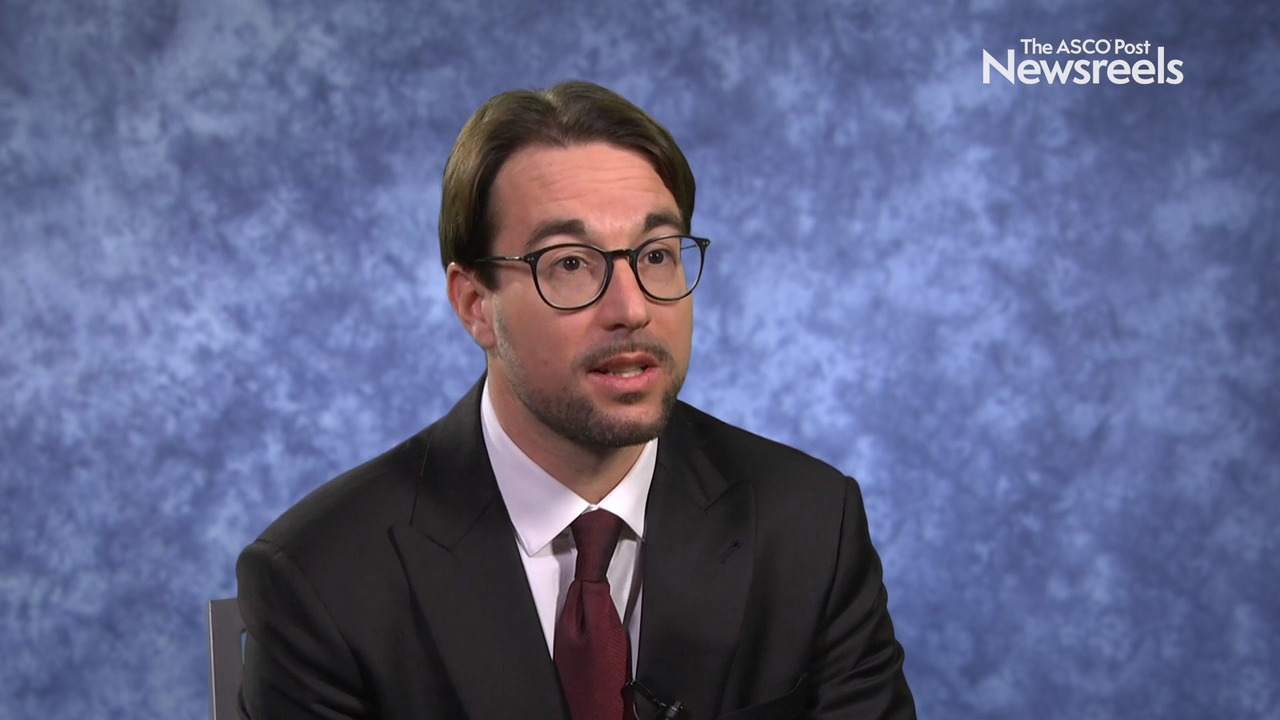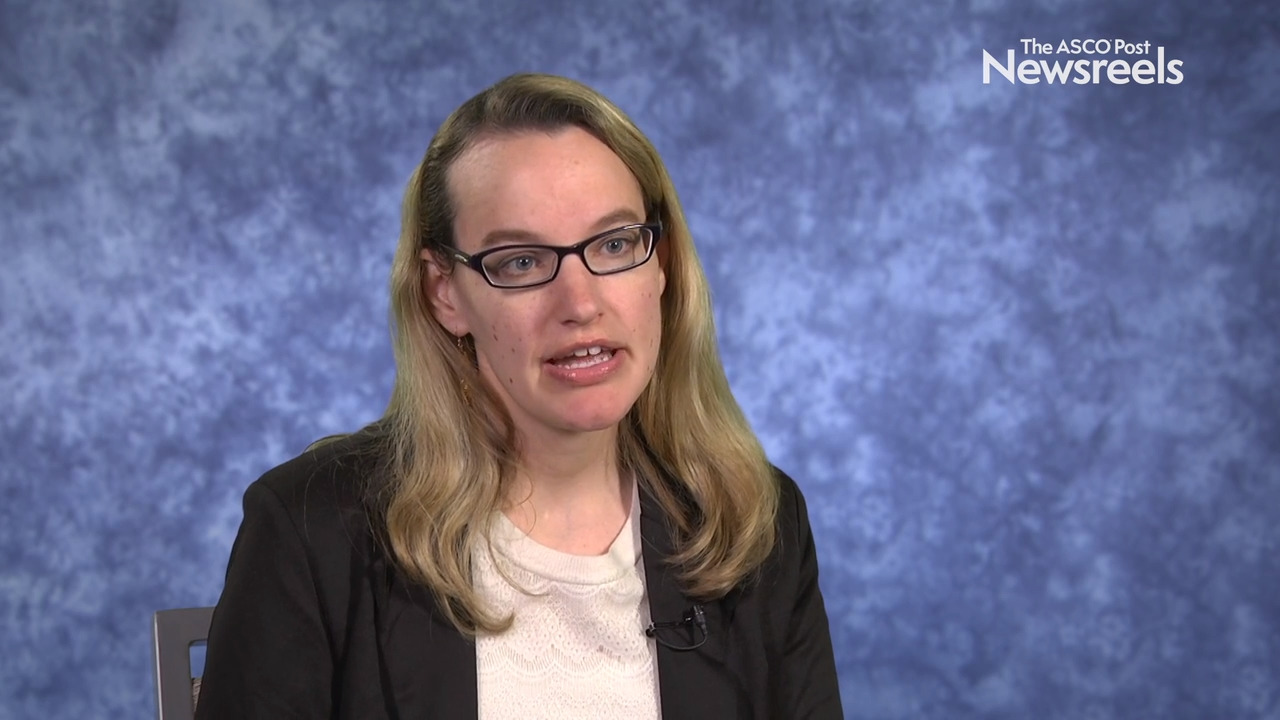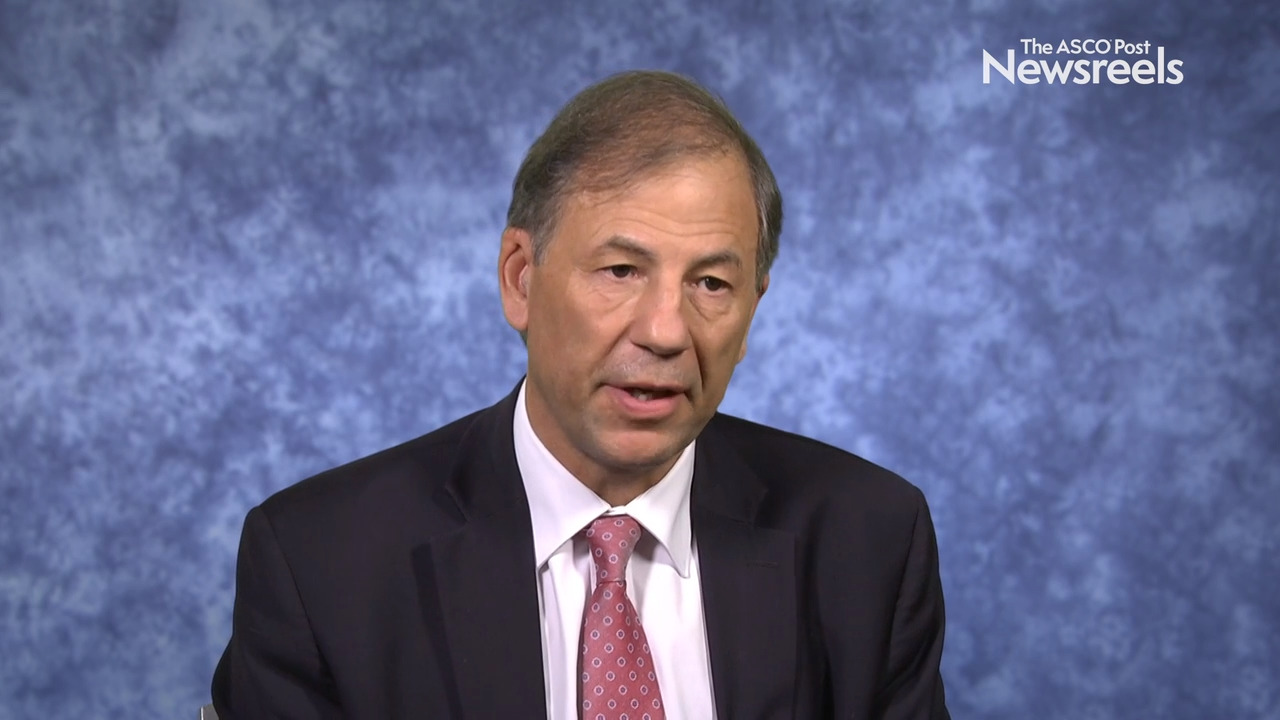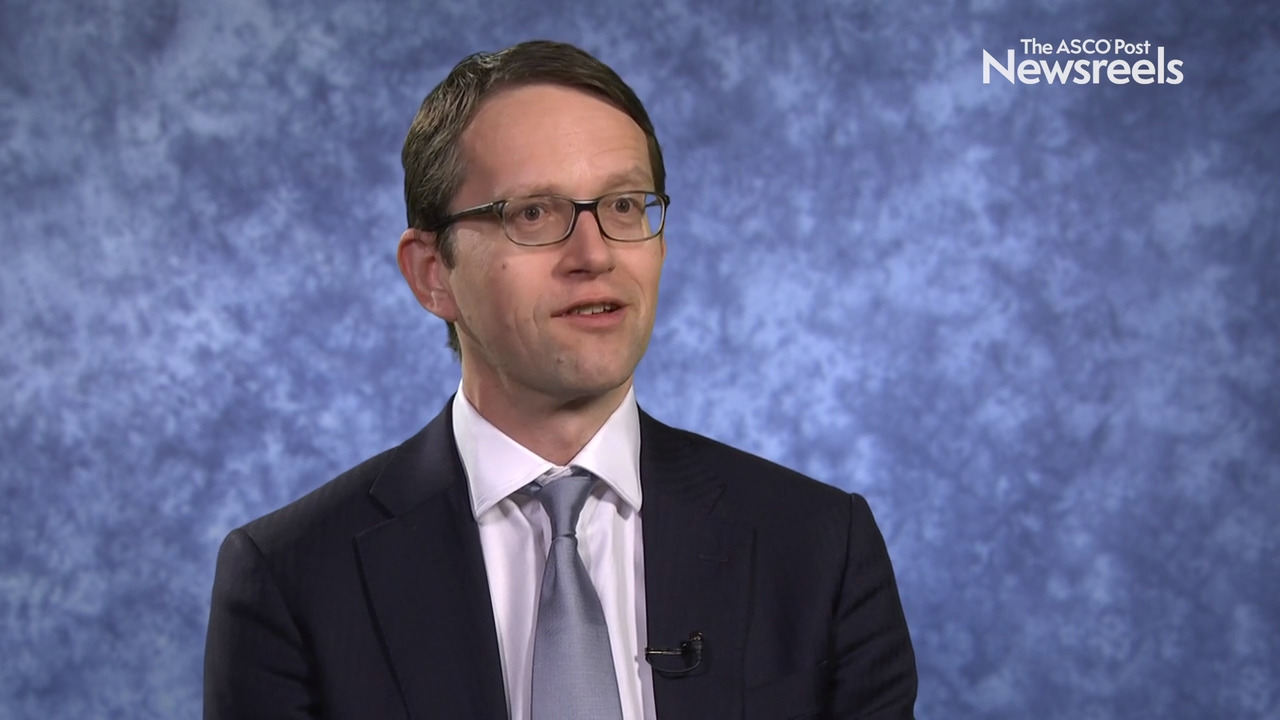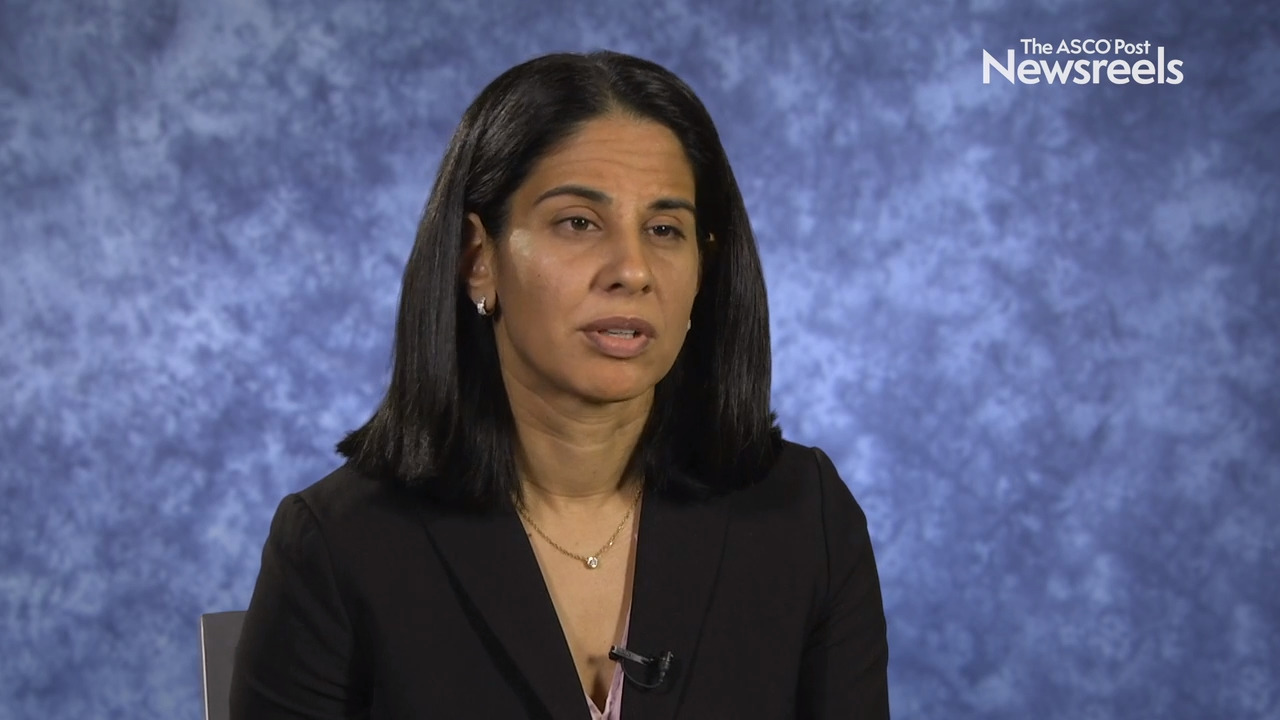Luca Gianni, MD, on the Neoadjuvant Treatment of Triple-Negative Breast Cancer
2019 San Antonio Breast Cancer Symposium
Luca Gianni, MD, of the Fondazione Michelangelo, discusses findings from the NeoTRIP trial on pathologic complete response to neoadjuvant treatment with or without atezolizumab in triple-negative, early high-risk, and locally advanced breast cancer (Abstract GS3-04).
Icro Meattini, MD, of the University of Florence, discusses study findings that showed the less-invasive partial-breast irradiation using intensity-modulated radiotherapy after surgery may be an acceptable choice for patients with early breast cancer, as it is cost-effective, safe, and efficacious when compared with whole-breast irradiation (Abstract GS4-06).
Ariella B. Hanker, PhD, of UT Southwestern Medical Center, discusses data showing that breast cancers expressing co-occurring HER2 and HER3 mutations may require the addition of a phosphoinositide 3-kinase alpha inhibitor to a HER2 tyrosine kinase inhibitor (Abstract GS6-04).
Terry P. Mamounas, MD, MPH, of Orlando Health UF Health Cancer Center, discusses 10-year results from NRG Oncology/NSABP B-42, which showed that, for postmenopausal women with hormone receptor–positive breast cancer who have completed previous adjuvant therapy with an aromatase inhibitor or with tamoxifen followed by an aromatase inhibitor, extended treatment with letrozole improved disease-free survival (Abstract GS4-01).
Nicholas C. Turner, MD, PhD, of The Royal Marsden NHS Foundation Trust, discusses findings from the plasmaMATCH trial, which showed that circulating tumor DNA testing offers accurate tumor genotyping to identify patients with rare HER2 and AKT1 mutations and may enable matching them with targeted treatments (Abstract GS3-06).
Sara M. Tolaney, MD, MPH, of Dana-Farber Cancer Institute, discusses phase II findings on patients receiving T-DM1 monotherapy as adjuvant treatment for stage I HER2-positive breast cancer, a regimen associated with few recurrences in the study population (Abstract GS1-05).
